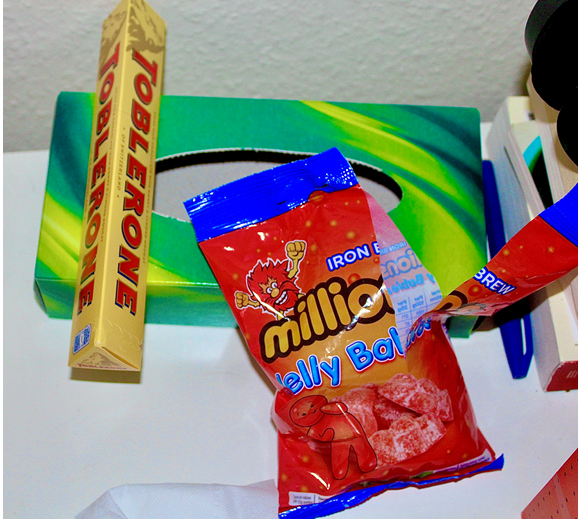Ella Matza
‘Scotland vs. Switzerland, battle of the sweets’
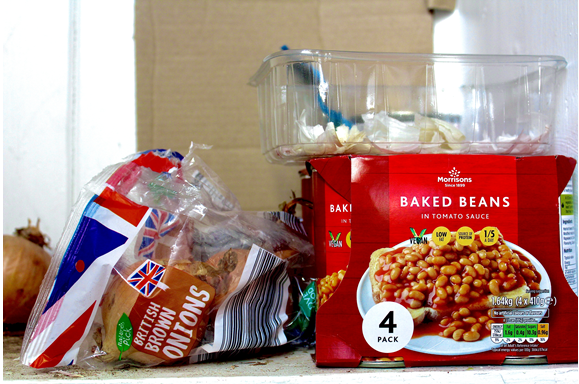
‘A wee British ecosystem’

‘Self portrait as my bedside table’
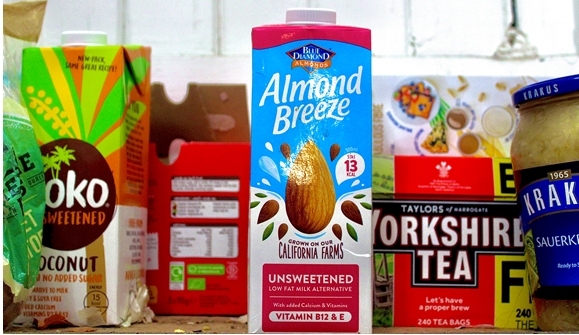
‘Model UN after party’
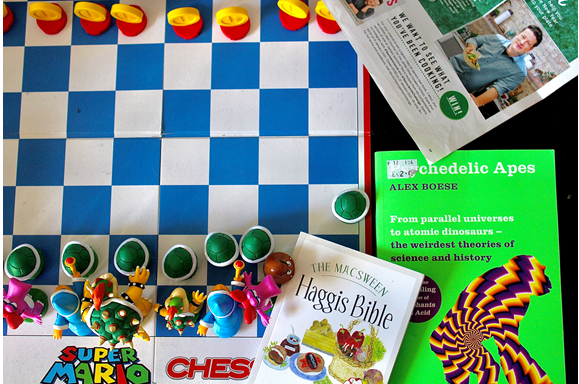
‘Clashing identities’
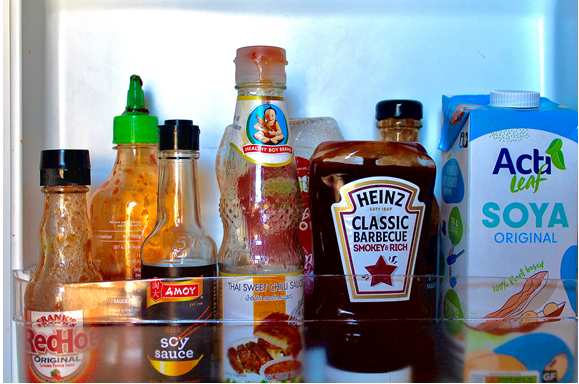
‘Global explorers’
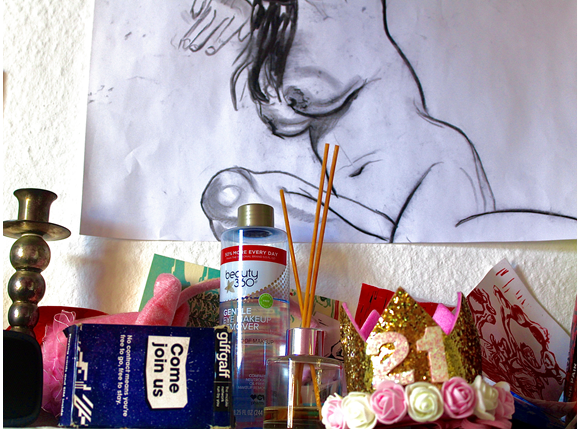
‘Beauty 350’
“Part of the potency of common sense… is to rule out our thinking any differently about the world. That is, to subjugate our own mental capacity to imagine the world otherwise.” – Noam Chomsky
This photo essay was an exploration into how capitalist commoditization and advertising invades the private sphere and plays a part in shaping my identity. One’s home is a very personal space, which is often thought of as separate or safe from the political forces of the outer world. For me, it is a space that I have lived in for 3 years, and that I have cultivated to fit my needs of comfort. Every book on my shelf, every jar in my cupboard, and every random scrap of junk resting on a shelf is a testament to me and the time I’ve spent here. And yet, by documenting my everyday personal spaces, I was able to notice aspects of my everyday life through a new, political lens because I acted as an outside observer looking in, as if on someone else’s life. Shifting the gaze onto myself allowed me to have an altered way of seeing, and I began to notice brand names and labels everywhere I looked. The camera lens allowed me to zoom in on objects, words, and small ecosystems within my home that were seemingly mundane and uninteresting. Upon closer inspection, I observed how commoditization creates a world in which ephemera that shape our identity as individuals are also commodities that bring financial gain to some, while exploiting others.
My bedside table became a maze of fluorescent colors. A completely candid mess offered so many symbols of my identity as Jewish, as an artist, as someone who makes handwritten lists, etc. The balls of yarn are tools for my exploration of crochet – to learn a new skill – but they are also a commodity sold by a German company as part of a global market economy. I began to notice how the Union Jack appeared on every product in my kitchen that was made in the UK, and how even within a single shelf of my fridge there were sauces that came from Thailand, America, Hong Kong and several other nations. Nationalist sentiments seem to be shaping food production and advertisement, and the choices I make about food consumption are now choices to support the ideology of the country where that food was produced. In ‘Beauty 350’, one small part of a shelf in my living room contained so many symbols of femininity, including a nude drawing, a princess crown, and gentle makeup remover. Femininity itself has been commoditized for profit. I grew up wearing makeup everyday, and even exploring how different colors and styles would change my identity, without ever questioning the companies that sold these products to me, or why the industry profits off of my identity being bound to these products.
I edited these pictures to be highly saturated and defined, so that these mundane spaces would take on an almost iridescent and alien look, drawing more attention than is normally given to them. My intention in doing so is to remind us of what we often forget, which is how pervasive capitalism is in our everyday lives because it has become common sense. As the Noam Chomsky quote highlights, this affects our mental capacity to even imagine another way of life. Thus, it is only when I looked at my private world through the lens of a camera and with the intent to make a political critique that I truly noticed the politics of identity within global commoditization of everyday products. This revealed to me how political the personal really is, and just how pervasive capitalism has become, even in manipulating our understanding of the self.
Click Below to Return to the Curation Front Page:
